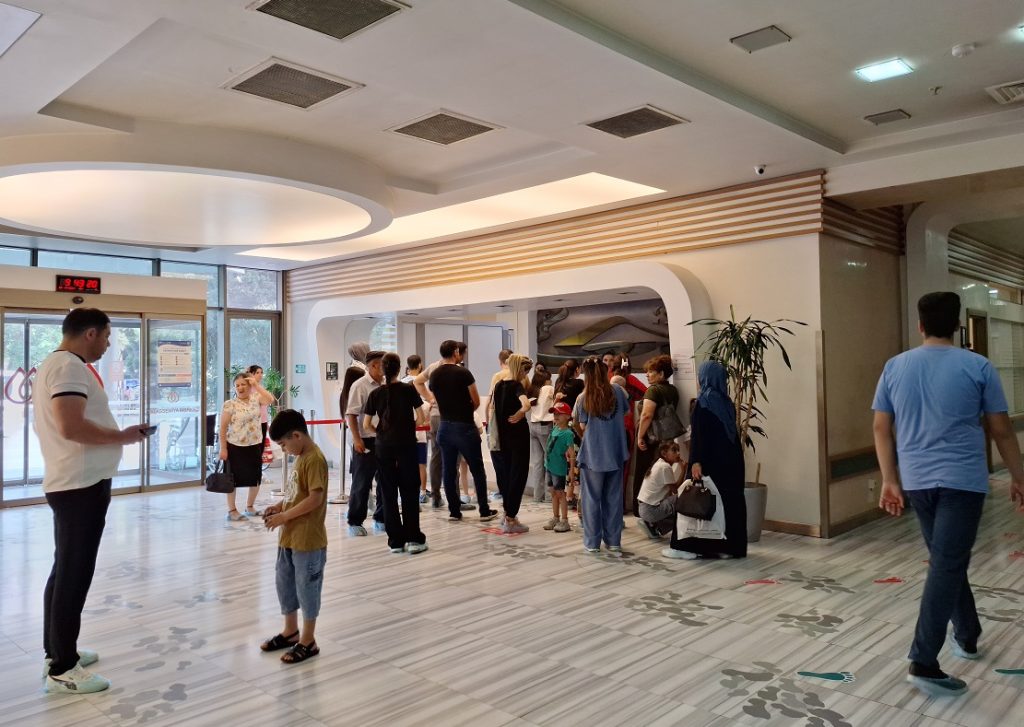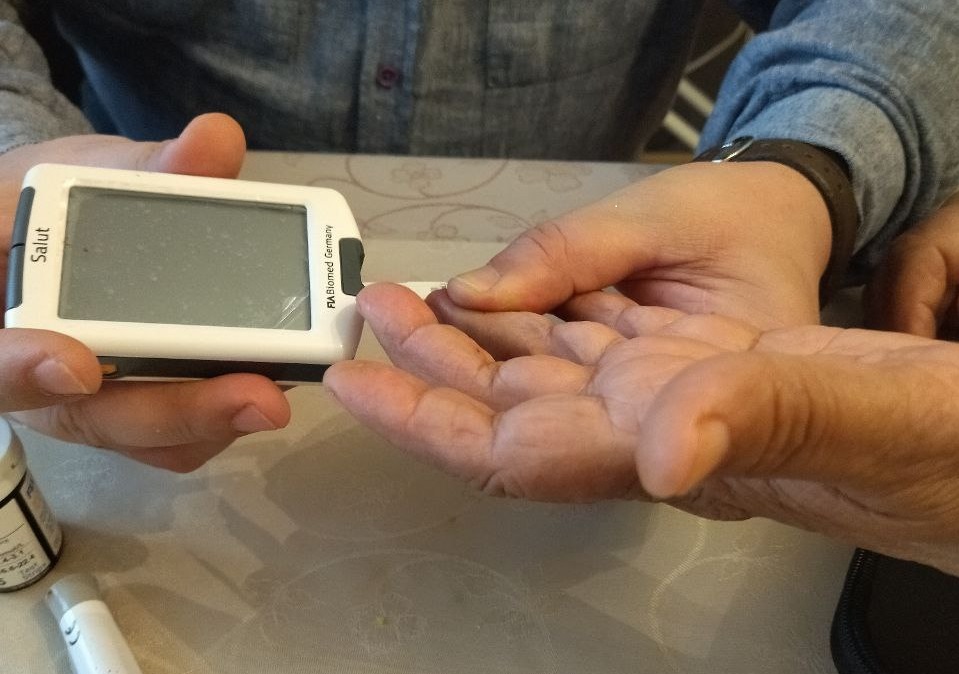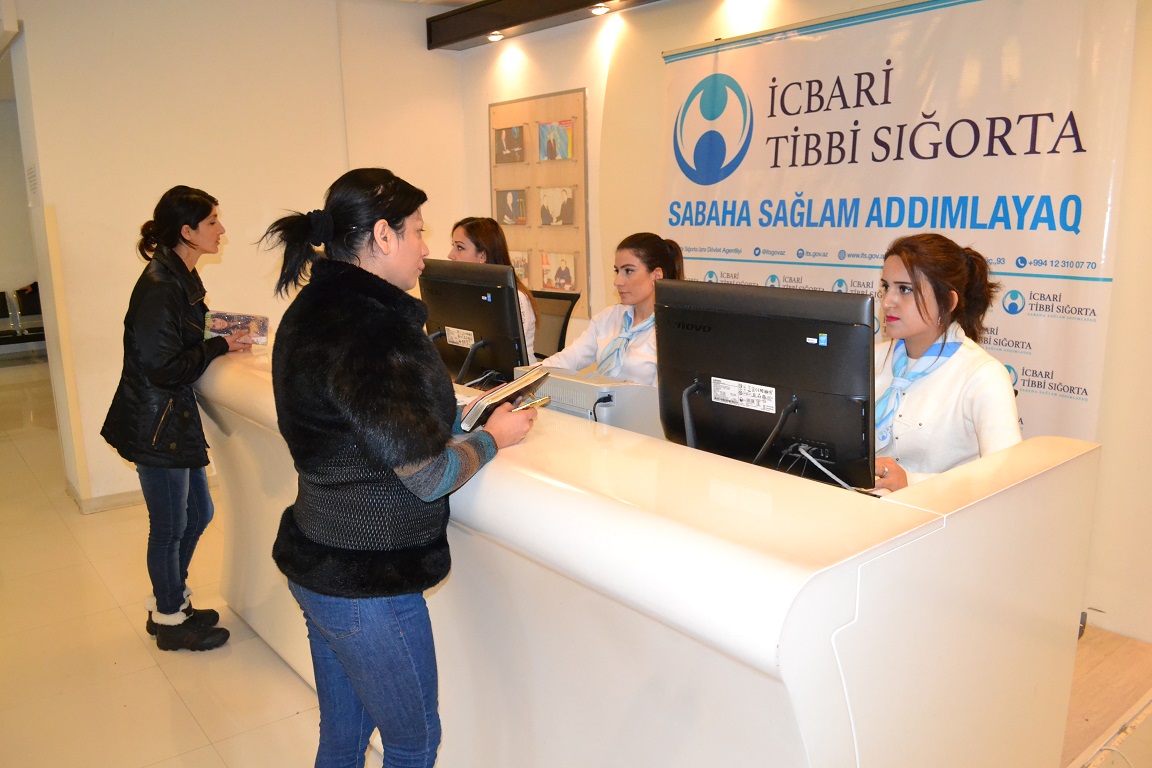
Thalassemia in Azerbaijan
This morning, the corridors of Azerbaijan‘s National Center for Hematology and Transfusiology (formerly the Thalassemia Center) are crowded, just like any other day. The registration desk is located on the first floor. Here, patients with thalassemia, waiting to be registered for the first time, stand in line.


On the upper floors, there are even more patients. All the benches in the corridors are occupied. Most of the patients are young children.
Arzu, who is 1 year and 7 months old, is one of them. Diagnosed with thalassemia at three months old, the little girl sits on her grandmother’s lap, occasionally smiling at passersby.
“Arzu suddenly refused to eat when she was 40 days old. Her skin turned yellowish. She moved very little. Before that, she was a normal, active baby. We knew something was wrong,” says Zohra Sariyeva about her granddaughter.
The Sariyev family lives in the Kurdamir region. Arzu’s parents are distant relatives and both are carriers of thalassemia. Their first daughter was born with thalassemia, and their second child, Agil, is a carrier of the disease.
Scamming families of children with thalassemia
Currently, a high-profile trial is underway in the Baku Grave Crimes Court against a group of three people who deceived families of children with thalassemia by promising treatment abroad and embezzling large sums of money.

In February 2023, after parents of children with thalassemia appealed to the Ministry of Internal Affairs, a criminal case was initiated against Nurida Seidova, the owner of the companies Urmedhelp and My Doc Tour, and two others, Aynur Bayramova and Aysel Mamedova.
It was found that Nurida Seidova, in collusion with Bayramova and Mamedova, abused the trust of the parents of 36 children with thalassemia and embezzled 1 million manats (approximately $588,000), allegedly for organizing bone marrow transplants in Turkey for these children.
Three of those children died because the bone marrow transplants were not performed in time. The father of one of the children who did not receive the operation also passed away.
Thalassemia is a hereditary blood disorder characterized by a disruption in the synthesis of hemoglobin within red blood cells. People who are carriers of thalassemia often do not experience symptoms and have no specific complaints. Many discover they are carriers through blood tests conducted during routine medical examinations for other conditions.
Since 2015, in Azerbaijan, as part of preventive measures against hereditary diseases, couples are required to undergo medical examinations before marriage. These examinations include testing to determine if either partner is a carrier of thalassemia. Being a carrier does not mean being sick. Carriers cannot infect others, require no treatment, and do not pose a barrier to marriage. If only one parent is a carrier of thalassemia, the likelihood of the child developing thalassemia is zero. However, if both parents are carriers, their child has a 25% chance of being completely healthy, a 50% chance of being a carrier of thalassemia, and a 25% chance of being born with thalassemia.
About 10% of Azerbaijan’s population are carriers of thalassemia
As of the end of 2023, according to the State Statistics Committee, there are 4,916 people registered with thalassemia in medical institutions in Azerbaijan, including 2,361 minors.
In 2023, 385 new cases of thalassemia were registered, including 190 children and adolescents under the age of 17.
According to information released by representatives of the Republican Thalassemia Center in 2018, the number of thalassemia carriers in Azerbaijan is over one million people, which accounts for approximately 10% of the country’s population.
Sometimes, it’s impossible to wait for a suitable bone marrow donor for transplantation
Since the approval of the state program by the Cabinet of Ministers of Azerbaijan in 2006, significant efforts have been made to improve medical care for thalassemia patients.
According to the program, thalassemia patients receive medications, and blood and bone marrow transplants are provided free of charge. This has been confirmed by patients themselves and their relatives with whom we spoke at the Thalassemia Center.

But when a patient’s condition deteriorates, there may be an urgent need for a bone marrow transplant operation. Waiting for a suitable donor within the state program can be challenging. In such cases, parents strive to arrange this operation abroad using their own funds or through donations, similar to the parents of the 36 children deceived by scammers.
“The only radical treatment for thalassemia is bone marrow transplantation. This involves replacing damaged or completely destroyed bone marrow with new bone marrow cells from a donor. Typically, siblings are potential donors. If they are not suitable or unavailable, donors are sought from local and international bone marrow banks.
However, this is a lengthy and difficult process. Patients are forced to travel abroad for the operation at substantial costs,” says Dr. Aydin Aliev.
“For treatment in Turkey, 80,000 manats are needed”
“For treatment in Turkey, 80,000 manats are needed,” says Zohra Sariyeva, adding that they hope her granddaughter Arzu can also undergo a bone marrow transplant. They are hopeful that Arzu’s little brother, Agil, can be a donor for her.
But if her brother is not deemed a suitable donor for Arzu, they will also need to go abroad if they can find the funds.
According to Zohra Sariyeva, they inquired and found out that finding a suitable donor and conducting the operation in nearby Turkey typically costs around 80,000 manats (approximately $47,000). The family cannot afford that amount.
“We don’t have the money for the operation right now. Honestly, if we had to pay for treatment, we probably wouldn’t be able to afford it. All treatments are provided at the state’s expense. Now we’re waiting to see if Agil’s bone marrow is a match for Arzu. If it is, her surgery will also be free. Our whole hope is in him,” says Zohra Sariyeva, looking at her granddaughter sleeping in her arms.
Thalassemia in Azerbaijan



